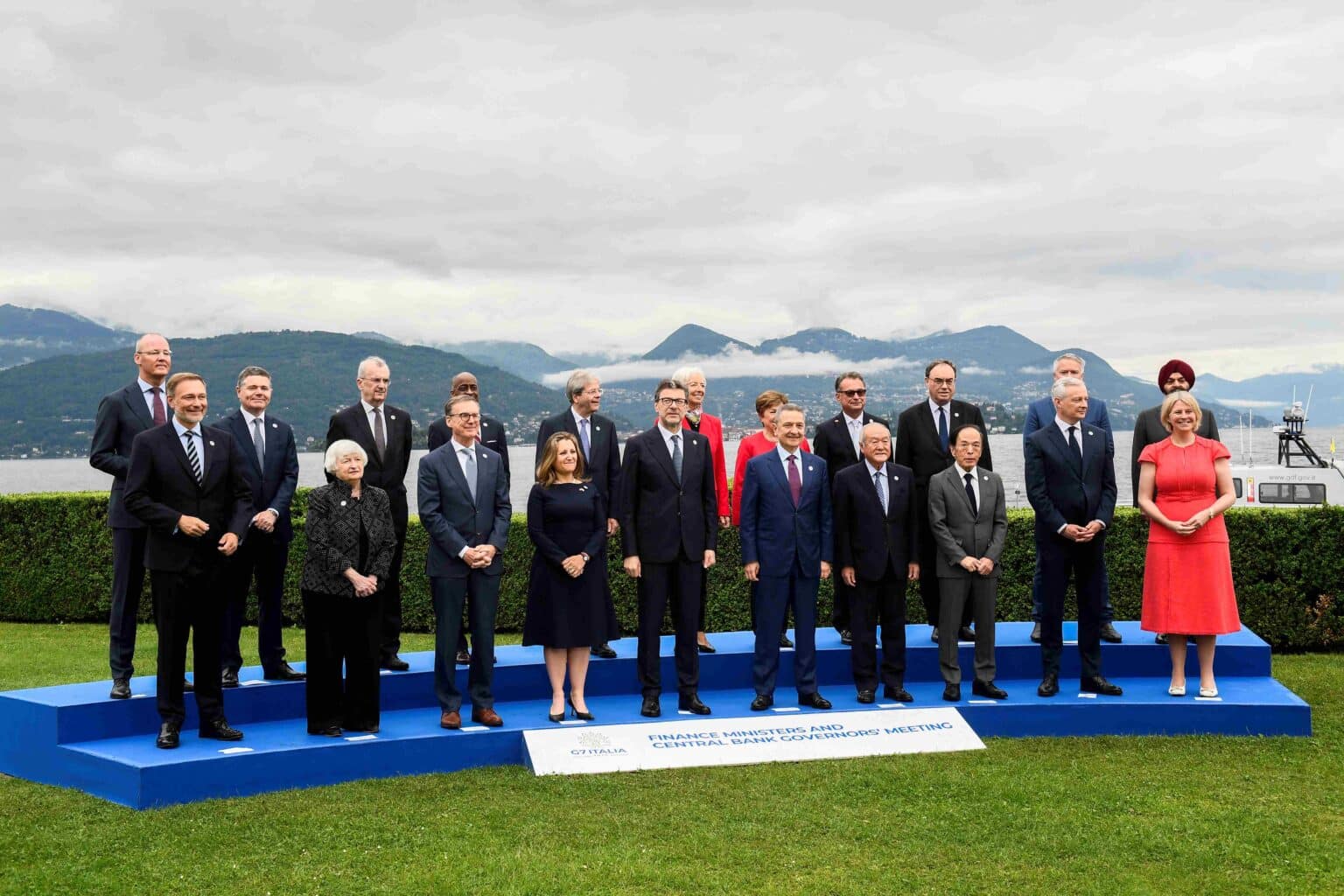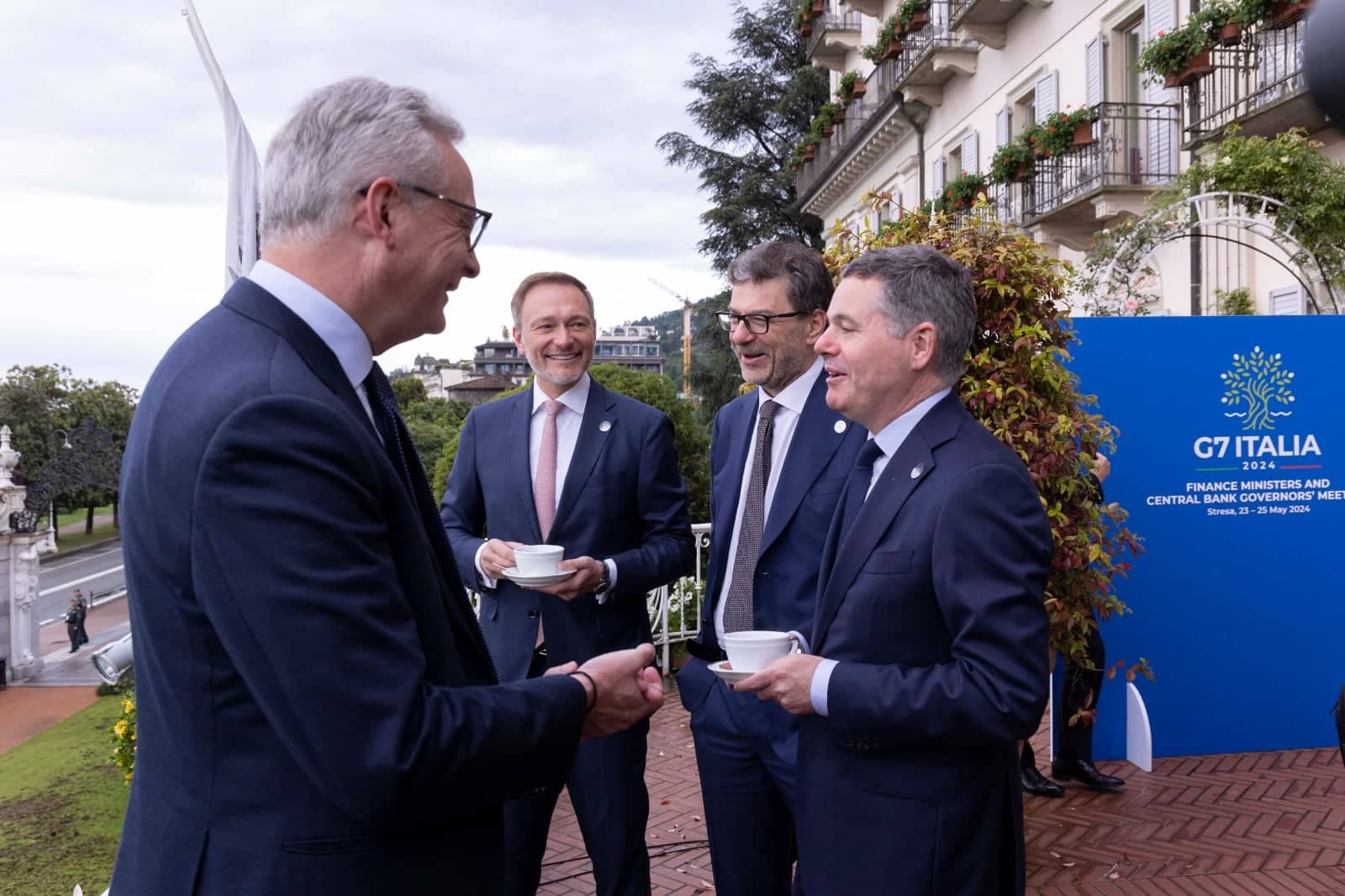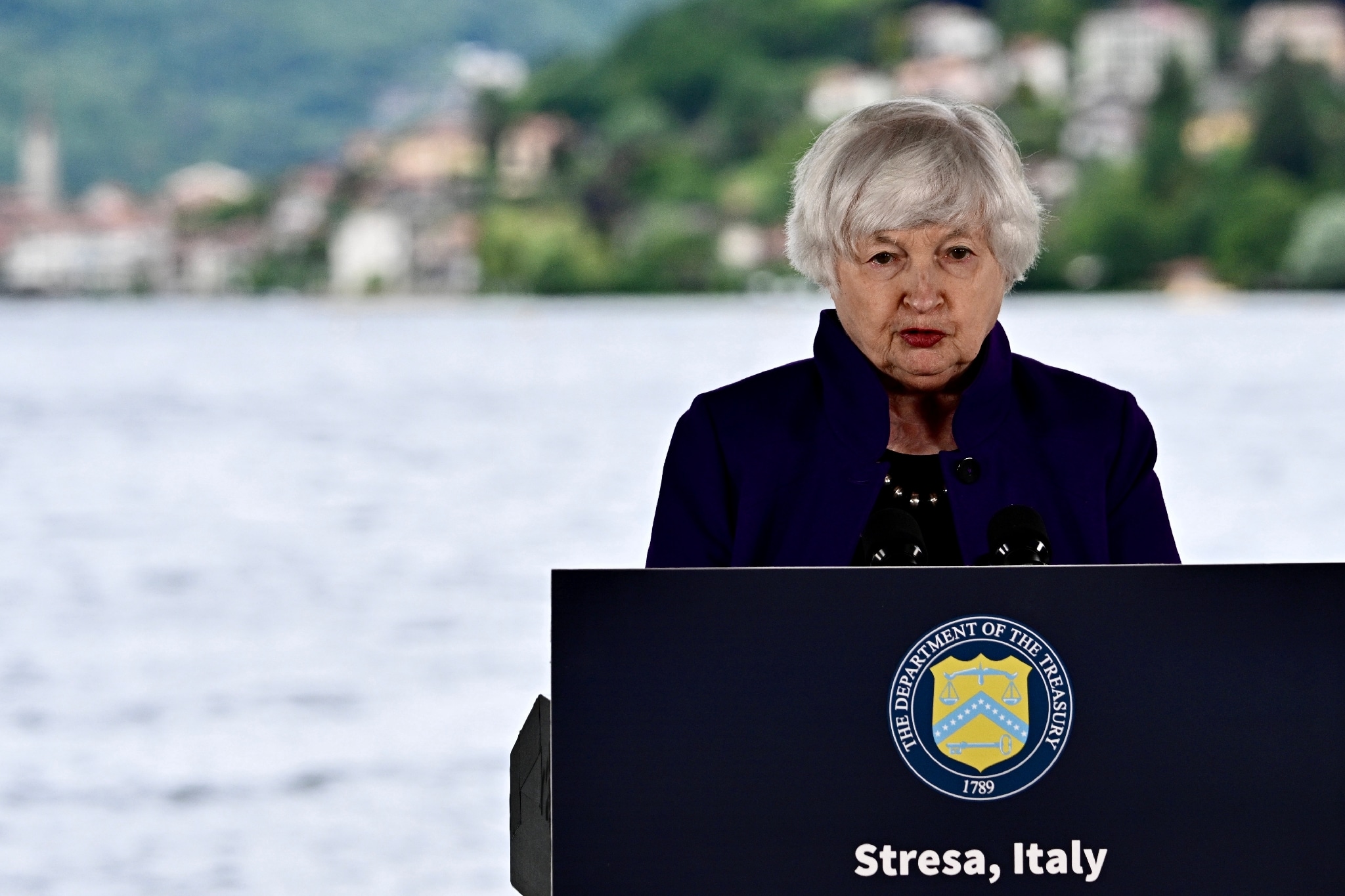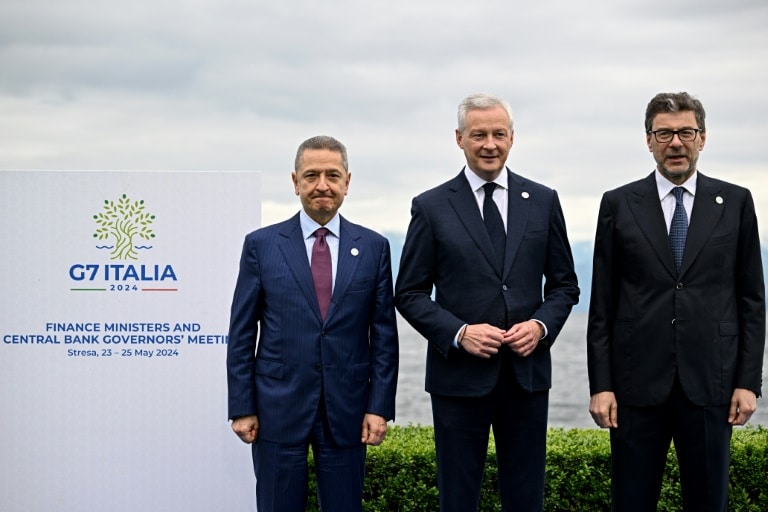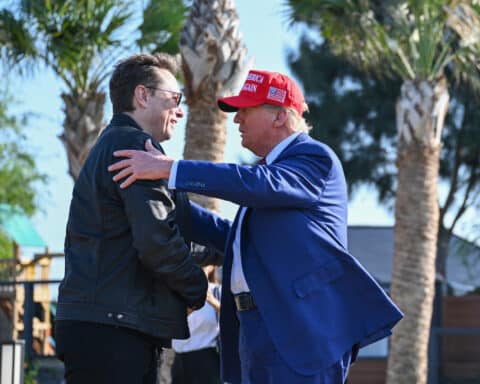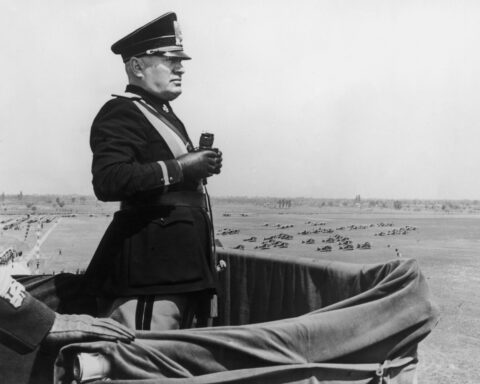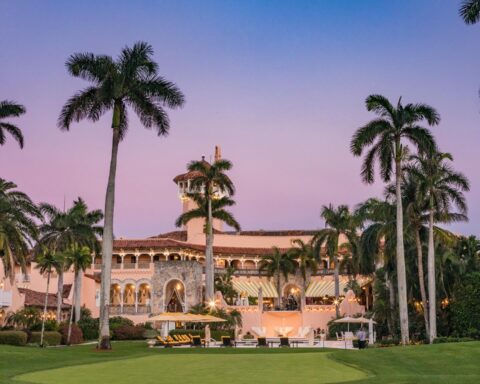Meeting in Stresa from May 23 to 25, the G7 finance ministers addressed a number of global issues, including financial support for Ukraine and trade tensions with China. In the run-up to the G7 Summit in June, discussions also focused on the repercussions of frozen Russian assets and the potential risk of retaliation from Moscow.
Two days of crucial discussions on the shores of Italy’s Lake Maggiore. The G7 finance ministers met in Stresa on Thursday May 23 to discuss collective responses to a number of global challenges. These included financial support for Ukraine and industrial competition from China.
“Progress has been made”, commented the meeting’s host, Italian Economy Minister Giancarlo Giorgetti, who praised the “strong political stance” taken by all the G7 countries, which include the USA, Italy, Japan, Canada, Great Britain, France and Germany. “The agreement reached is a political agreement”, he added.
The Italian minister acknowledged, however, that there were still “important technical and legal issues” to be resolved before the G7 leaders’ summit, to be held from June 13 to 15 in Puglia (Italy).
At the meeting in Stresa, a central point of discussion was the use of interest generated by Russian assets frozen abroad to finance aid to Ukraine.
“The G7 appears to be closing in on an agreement to use a substantial portion of Russian money” to fight “Russia’s war of national destruction against Ukraine”, commented the Atlantic Council think tank. “Even if it’s not enough, it’s a big step and it needs to be done quickly”.
Using frozen Russian assets
Russian assets, valued at around $280 billion, generate between $3 and $5 billion in interest annually.
In early May, the European Union approved an agreement in principle to use the income from these assets to support Ukraine, concerning the $185 billion in assets held by the European company Euroclear. The Belgium-based international money deposit organization has generated between 2.5 and 3 billion euros this year.
“We will propose using the windfall profits from Russian assets for years to come,” said French Finance Minister Bruno Le Maire ahead of the opening session, devoted to a general review of the global economy.
However, according to Bruno Le Maire, “such a seizure would weaken the international financial order”, pointing to the numerous legal obstacles and potential disputes with Moscow. As a result, discussions are focusing on the use of revenues rather than the total confiscation of assets.
The American plan
To ensure Ukraine’s financial needs for 2025 and beyond, the US has also proposed a plan to provide up to $50 billion in loans secured by future revenues from frozen Russian assets.
“We support the EU’s decision to use the windfall profits generated by these assets, but we must also continue our collective efforts in favor of more ambitious options,” said Janet Yellen, US Treasury Secretary, advocating a united front.
This plan would be a tangible gain for Joe Biden’s administration in the run-up to the US presidential election. Donald Trump, should he win, has made no secret of his skepticism about supporting Ukraine.
However, many questions remain to be settled, including who will issue the debt (the USA alone or the G7 countries), who will administer the loan (the World Bank or another body) and how it will be guaranteed.
Reprisals from Moscow?
Discussions also touched on the potential risk of Russian retaliation. In April, Moscow sent a thinly veiled warning to Italy, chair of the G7, by taking “temporary” control of the Russian subsidiary of the Italian Ariston group, in response to “hostile actions” by the United States and its allies. In March, Russia also threatened the EU with legal action “for decades” if it used the income from its frozen assets to benefit Ukraine, regarding this as “theft”. At the beginning of May, a decree was signed authorizing the confiscation in Russia of assets belonging to the United States or to persons “associated” with it.
The G7 ministers thus declared their “determination to increase financial and economic sanctions” against Moscow. The G7 is also “prepared to impose sanctions on individuals and entities that help Russia acquire advanced materials, technologies and equipment for its military-industrial base”.
To push the provocation even further, Russia has invited the Taliban to the St. Petersburg International Economic Forum, scheduled for June 5-8. An overture to the Afghan Islamist movement, until now branded as terrorist and boycotted as such by Moscow. According to Zamir Kaboulov, Director of the Department of Asian Affairs, the Russian Ministries of Foreign Affairs and Justice have discussed lifting the ban with President Vladimir Putin.
Since the return of the Taliban to power in 2021, Russia has gradually established ties with the new regime. The Afghan leadership’s interest in petroleum products is said to be one of the reasons for this invitation.
Relations with China on a knife-edge
Another major topic was industrial competition from China. The ministers discussed Beijing’s unfair trade practices, such as high subsidies and industrial overcapacity, which are disrupting world markets.
Bruno Le Maire stressed the importance of avoiding a trade conflict with Beijing, recalling that China is “our economic partner”. However, he also asserted that the G7 must defend its industrial interests.
“A trade war is not in the interest of the United States, China, Europe or any country in the world,” said Bruno Le Maire. “Nevertheless, we have a problem with unfair trade practices, high levels of subsidies and (China’s) industrial overcapacities.”
Giancarlo Giorgetti indicated that the EU could follow the US in raising tariffs on certain Chinese imports. This discussion comes as the US has recently imposed tariff hikes on Chinese products, including electric vehicle batteries and computer chips.
A global tax soon?
The ministers also discussed a global minimum tax on multinationals, although reservations remain on the part of the USA, India and China. The agreement, which was signed by some 140 countries in 2021, has never been fully implemented.
In addition, France and Brazil’s proposal for a global wealth tax on billionaires has been raised, despite the current lack of support from the USA.
Discussions will continue over the coming weeks to refine these proposals before the G7 Summit of Heads of State and Government in June. The progress made in Stresa marks a significant step towards greater financial support for Ukraine and a coordinated response to the trade challenges posed by China.
Read also>The race for the White House has begun, but who will emerge victorious?
Featured photo : © Press




